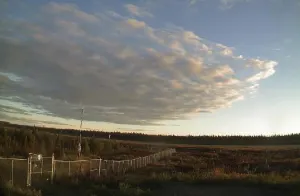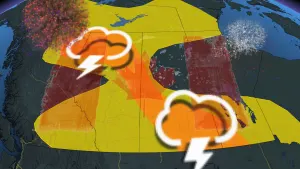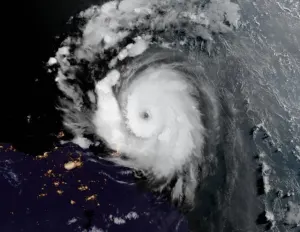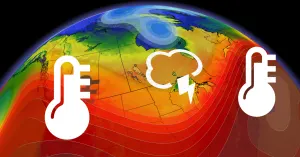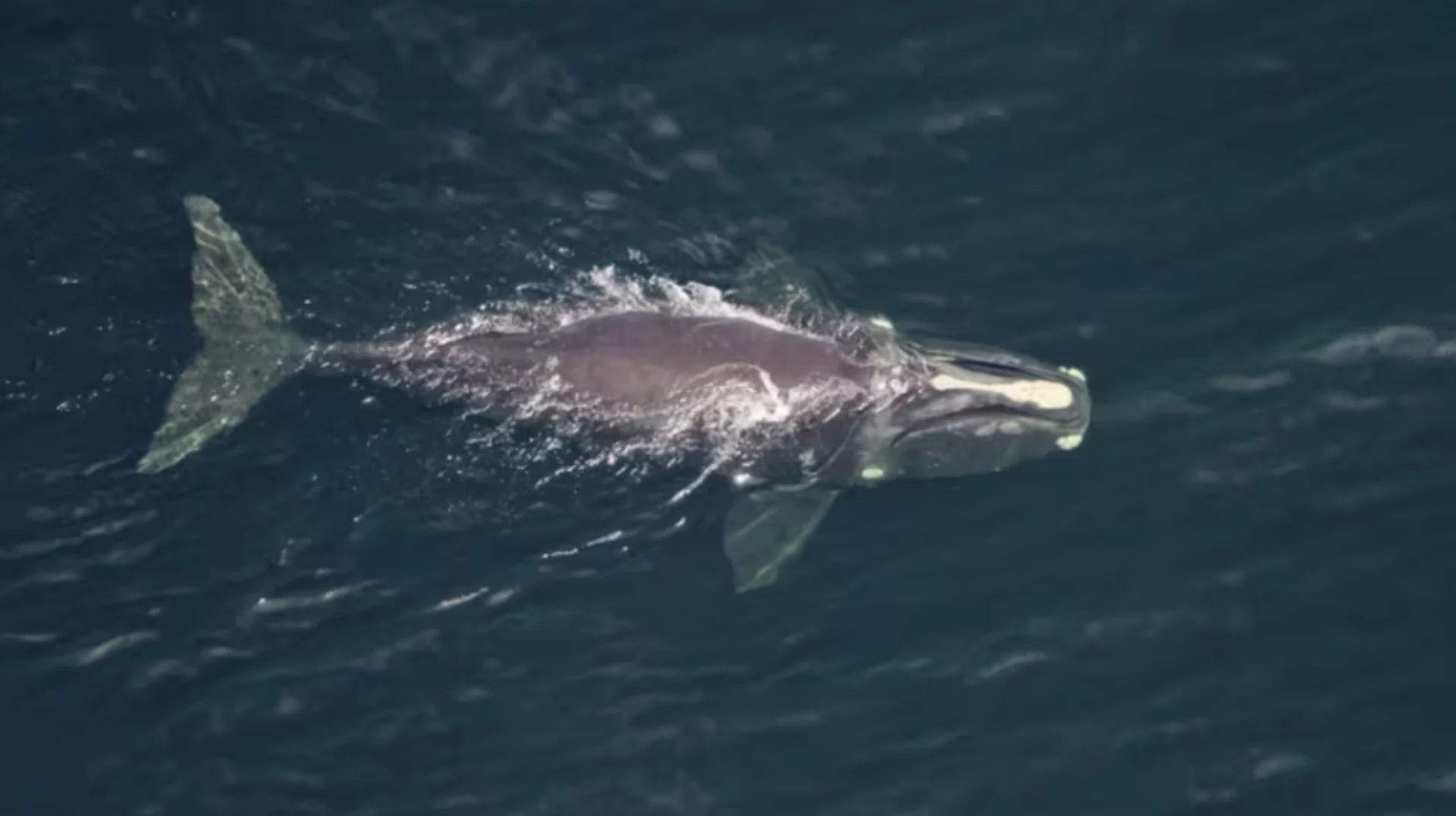
Entangled North Atlantic right whale spotted in Gulf of St. Lawrence
An endangered North Atlantic right whale has been spotted entangled in the Gulf of St. Lawrence, near Lamèque in northeastern New Brunswick.
A research vessel saw the whale, a 13-year-old male known as EG No. 4042, east of Lamèque and northwest of Prince Edward Island, on Saturday, Fisheries and Oceans Canada announced Monday.
ALSO READ: Beluga whale cam highlights the importance of Arctic Sea Ice Day
He appears to be carrying a "long trailing line, with no visible buoys," according to a news release.
Groups who respond to marine mammals in distress planned to attempt to disentangle the whale on Sunday morning, but couldn't because of the weather.
"If the whale is located again, and weather and sea conditions allow, efforts will be made to attempt disentanglement," the release said.
There are only about 340 North Atlantic right whales left in the world.
Entanglement in fishing gear remains a major threat, along with ship strikes.
WATCH: Scenic sunset of the Saint John River
Officials don't know yet what type of gear the whale is entangled in or where the gear came from. This can only be confirmed after gear is removed from an animal and investigated, Fisheries and Oceans said.
About 20 North Atlantic right whales died in the Gulf between 2017 and 2019. Protections were subsequently put into place and mortality rates have decreased, experts have said.
In Atlantic Canada, the visual or acoustic detection of a single right whale closes a 2,100-square-kilometre area of open water to fishing for all non-tended fixed gear, such as crab and lobster pots, for 15 days. In the gulf, if a whale is detected during days nine to 15, the closure is for the entire season.
Fisheries and Oceans Canada has put $20 million into various programs for whale-safe gear. The goal is to make the equipment ready to use across the Atlantic provinces in 2024.
Thumbnail image courtesy of Peter Duley/NOAA Fisheries Northeast Fisheries Science Center via CBC News.
This article was originally written by and published for CBC News.






